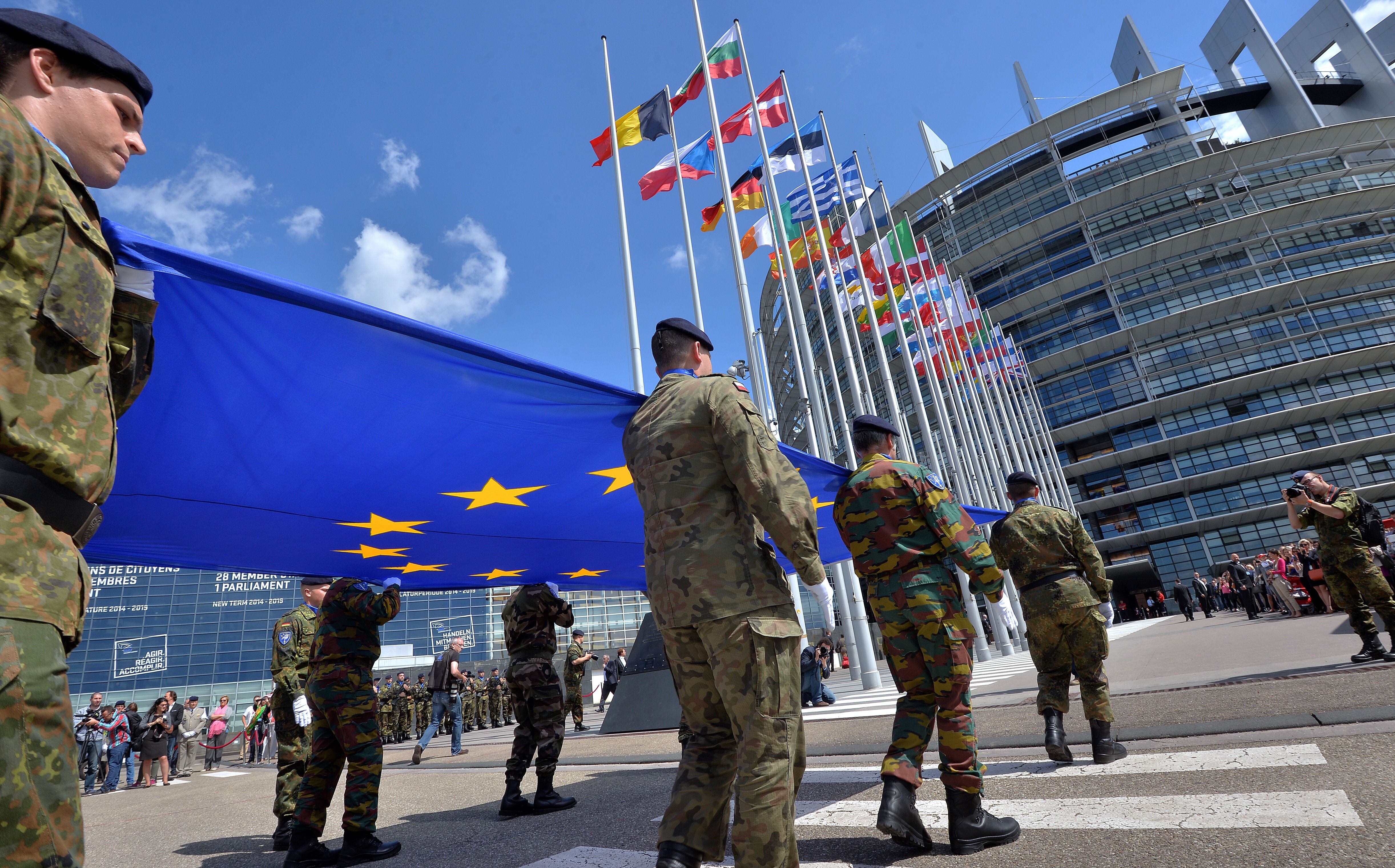LE BOURGET, France — The top Pentagon official attending the Paris Air Show this week made clear she would use the venue to make a declarative statement about a subset of European arms funding: Either give the United States the ability to compete for work, or risk retaliation.
The U.S. Defense Department is concerned about restrictions that would limit its ability to participate in the Permanent Structured Cooperation initiative, otherwise known as PESCO — a group of projects spearheaded by the European Union, as well a €13 billion (U.S. $15 billion) pool of money for military programs known as the European Defence Fund.
“As we read the language right now, even European-based subsidiaries of U.S. corporations, with European facilities and European employees, would not be allowed to participate with intellectual property exchange and a number of other issues of programs that grow out of EDF and more importantly PESCO,” Ellen Lord, the Pentagon’s undersecretary of defense for acquisition and sustainment, said Monday during a roundtable with reporters at the air show.
Read more from Paris Air Show 2019!
“Working together is of critical importance. Right now European companies enjoy an enormous amount of business in the U.S. and we want to make sure that U.S. companies have the same opportunity,” she said. “The interagency right now is discussing where this might go, and a whole range of actions are being discussed.”
Those options could include the possibility of shutting European companies out of future U.S. weapons competitions, Lord said, but she added that the United States is in no rush to make a decision and still sees ample time to negotiate with the EU.
The Pentagon acquisition executive wasn’t the only U.S. official making sure Washington’s complaints were heard during the air show. U.S. Commerce Secretary Wilbur Ross expressed similar concerns during an Aerospace Industries Association reception in Paris, according to Lord.
RELATED

Lord also discussed the issue with Kay Bailey Hutchison, the U.S. ambassador to NATO, and Gordon Sondland, the U.S. ambassador to the EU.
The Pentagon has raised concerns about PESCO before, most recently in a May 1 letter signed by Lord and Under Secretary of State for Arms Control and International Security Andrea Thompson.
However, EU foreign policy and defense chief Federica Mogherini responded that PESCO and EDF were designed for European nations.
“It's not defined as an instrument for partnership,” she said in May, adding that U.S. defense contractors do more work with Europe than European firms do with the U.S. military.
Although EU leaders have thus far resisted U.S. pressure, Lord said the letter helped bring clarity to the United States’ point of view and launch conversations.
“I think it’s a healthy dialogue that we need to have because I’m not sure that the Europeans understand the unintended consequences perhaps of some of the language that they have include in the documents,” Lord said.
But that could change as more European nations and businesses become aware of the United States’ objections, she said.
“I had a meeting with Thales this morning and we had very, very productive discussions because they frankly were unaware of the concern that we had as the U.S.,” she said. “It was a particularly good conversation because there is a number of Thales individuals that I worked with when I was in industry and now I’m working within government, so they understand that I understand both sides of this partnership.”
Valerie Insinna is Defense News' air warfare reporter. She previously worked the Navy/congressional beats for Defense Daily, which followed almost three years as a staff writer for National Defense Magazine. Prior to that, she worked as an editorial assistant for the Tokyo Shimbun’s Washington bureau.






